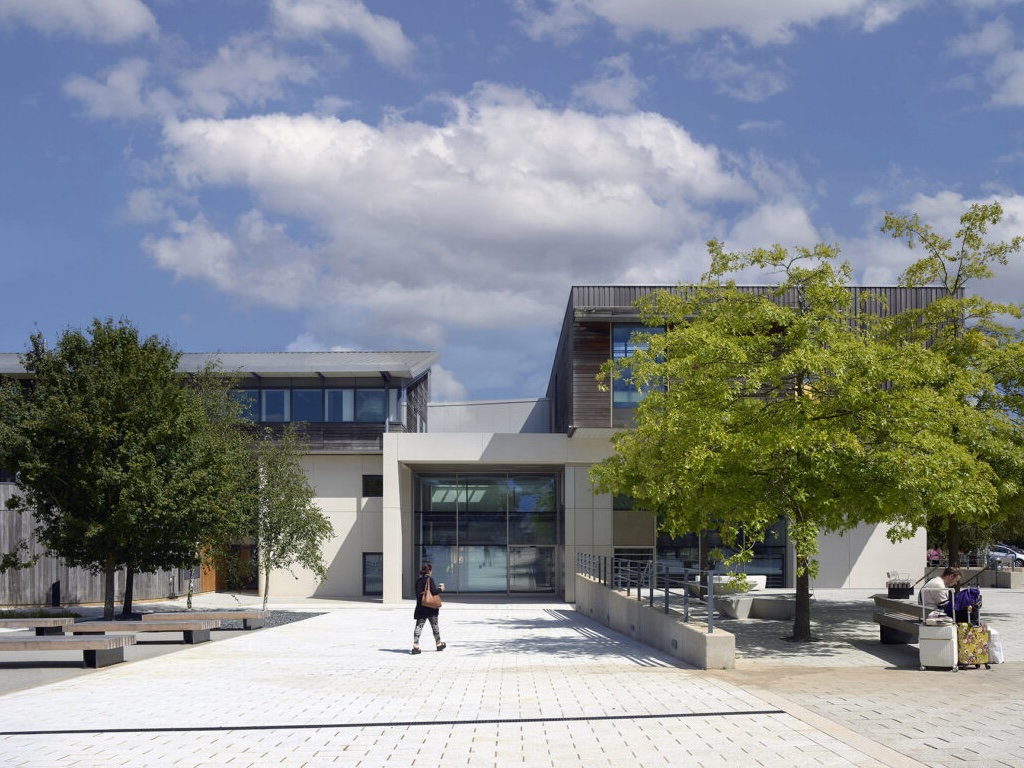RVC

Royal Veterinary College photo
The Royal Veterinary College's Hawkshead campus in Hatfield, north of London.
The Royal Veterinary College has regained full accreditation by the American Veterinary Medical Association Council on Education after its students sharply improved their collective performance on the key licensing exam that must be passed to practice veterinary medicine in the United States and Canada.
Students at the British school who elected to take the North American Veterinary Licensing Exam (NAVLE) achieved a pass rate of 86% during the 2024-25 academic year, according to an update posted on the school website.
AVMA COE-accredited veterinary schools must meet 11 standards laid out by the accreditor. Among those standards is the expectation that 80% or more of a school's students who take the NAVLE pass.
The RVC's improved performance came "thanks to the incredible dedication and hard work of RVC staff and students," the school told the VIN News Service in an emailed statement, adding: "The RVC is committed to providing all our students with the highest quality education, enabling them to pursue a wide range of meaningful careers around the world. As part of this commitment, we continue to provide ongoing support to students wishing to take the NAVLE."
An AVMA COE notice of accreditation actions dated Oct. 16 confirms that the RVC is fully accredited again.
If, for two consecutive years, fewer than 80% of students at an accredited school taking the NAVLE fail to pass the exam, the school is placed on "probationary accreditation." If the school falls short for four, it is placed on "terminal accreditation," according to COE policies and procedures. The RVC had missed the minimum pass rate for three consecutive years and by widening margins — coming in at 71%, 63% and 60% during the 2021-22, 2022-23 and 2023-24 academic years, respectively.
This year's leap up from 60% to 86% has provided relief for dozens of North American students at the prestigious school who would have faced major impediments to practicing in their home countries if AVMA COE accreditation was lost. The AVMA COE is the single recognized veterinary school accreditor in Canada and the U.S.
Still, the RVC's recovery came too late for at least one student. Unable to tolerate the uncertainty created by the school's accreditation challenges, the student decided to return home to the U.S. this year and complete their veterinary studies at a domestic program. The student asked not to be identified publicly owing to the stress of the change.
The news about the RVC's restored accreditation status wasn't entirely a surprise. School officials told students in May that it was "on track" to achieve an adequate NAVLE pass rate, if narrowly. The school's principal, Dr. Stuart Reid, said at the time that, based on students' "self-reported" results, the class of 2025 had achieved a pass rate of 79.2%, which would clear the threshold of the exact binomial confidence interval, an alternative statistical calculation applied by the AVMA COE. Reid noted, however, that the figure was a cautious estimate based on limited information, and it could change.
The AVMA COE's update this month also confirms that a veterinary program at another British school, the University of Glasgow, has regained full accreditation after improving a substandard NAVLE performance.
On its website, the Scottish school says its pass rate in the 2024-25 academic year was 82%. The school had achieved pass rates of 67% and 62% in the 2021-22 and 2022-23 academic years, respectively, the website shows. The school didn't post its pass rate for 2023-24, but the fact that the AVMA COE kept it on probationary accreditation until this year indicates that it, too, had fallen short of the minimum pass rate for three years in a row.
The University of Glasgow had announced earlier this year that students who took the NAVLE last fall achieved a pass rate greater than 90% and that it was hopeful students who took the exam this spring also performed well. (A school's ultimate pass rate historically has been based on student performance over the course of two testing windows: one in November/December and one in April. Starting this academic year, the exam is being offered during three windows.)
Mixed news for U.S. schools
Among other developments announced in the AVMA COE's notice of accreditation actions:
- Texas Tech University School of Veterinary Medicine, which opened in 2021, gained full accreditation. As with all new schools, it was on provisional accreditation until it graduated its first class. Texas Tech confirmed in a press release that its first class graduated in May, with 97% passing the NAVLE.
- Lincoln Memorial University College of Veterinary Medicine in Tennessee continues on probationary accreditation due to what the accreditor deems a major deficiency in its research program. The school was first placed on probationary accreditation in October 2024 for that reason. LMU sued the AVMA in June 2025, alleging, in part, that the AVMA COE was likely to terminate its accreditation based on what it described as a vague and onerous research standard.